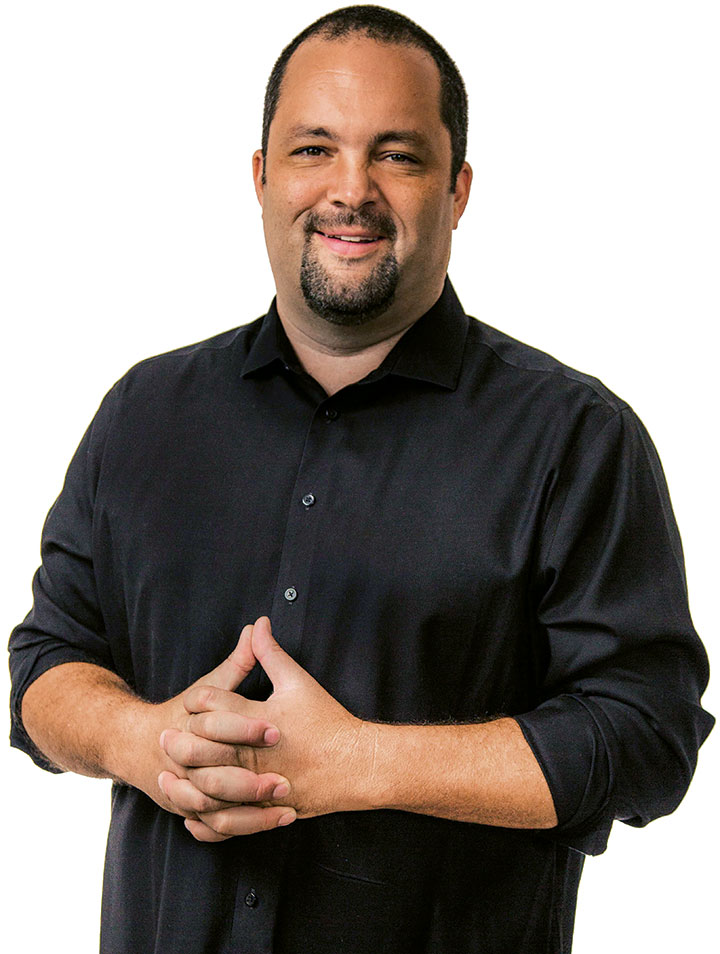Q&A: Ben Jealous on the Art of Advocacy
A civic leader, vocal Bernie Sanders supporter, and venture capitalist, former NAACP chief Ben Jealous is bringing his passion for social justice to campus this fall as he begins a three-year position as a visiting professor and lecturer in the Woodrow Wilson School. Jealous spoke in August with PAW about the courses he will teach, the role of activism in academia, and how race relations have changed since President Barack Obama took office.
You are teaching courses this fall on America’s changing demographics and mass incarceration. Why did you choose those topics?
I thought it was important to teach about issues that are timely and related to what people in this country are talking about every day. On the one hand, with criminal justice, we have the widening consensus that the time has come to downsize our nation’s prisons. We’re forced to confront the carnage of our failed racial-profiling practices weekly, as one more unarmed black person is killed by the police and it’s caught on video.
On the other hand, we are headed into another historic presidential election that’s likely to be marked by allegations of voter suppression, and the first since a new big wave of voter-suppression laws has gone completely into effect. And so I’m excited to get into the class and mix it up on issues that are, for better or worse, part of our daily conversation as citizens and people in this country.
What do you hope your students take from these courses?
I’ll be encouraging students to find one big thing they want to change about their community or country before they die. You have to have some grander vision for our society that you can recognize, focuses your work, and brings passion to your career. Every citizen is better off if you are propelled by a passion to make this country and world better for all of us in at least one significant way before you retire.
What do you think the role of an activist in academia should be?
The most important obligation of someone who has helped to win big victories for disadvantaged groups in our society is to teach the history of how victories have been won to those who will win the next victories. It’s not because those challenges or struggles will be exactly the same, but rather to provide students with case studies to understand how others have climbed the mountain in the past so that they can begin to imagine how they’re going to climb the mountains in front of them and learn from our mistakes and be able to adapt lessons from our victories.
As an organizer and a leader in the civil-rights movement, I’ve always taken seriously my obligation to deliver real victories for real people in real time. And I think my No. 1 obligation as a visiting practitioner is to help students learn the art and science of effective advocacy, and to otherwise prepare them to go out there and win great victories for America’s and the world’s most disadvantaged communities.
How do you view the racial divide in our country now as opposed to eight years ago?
We now have some young voters who have only ever voted for a black president, and there are many young people who can only remember there being a black president. But on the other hand, there are also people in our society who are more comfortable speaking in more blunt terms about their intention to maintain the status quo or turn the clock back on millions of their neighbors.
The Southerner in me actually appreciates the honesty — I would rather deal with the Southern tradition of blatant bigotry than the Northern version of subtle bigotry. Because on one hand, the results are similarly disastrous, but in the case of the former, it’s on the table and we can deal with it. And while it’s scary to have an honest conversation, history has shown us that ultimately many of our greatest victories in race relations have been won despite the challenges of bigotry because the racism was impossible to deny.
What do you think the future holds for progressives in the Democratic Party, especially in light of the support demonstrated for the Bernie Sanders campaign?
Progressives are the future of the Democratic Party. We won the hearts and minds of millions of Americans of all ages and races, but most decidedly, of Americans under 45 across the country. And those voters are the future of the party.
As progressives, what we’ve done best throughout history is broaden access to the American dream and secure it from threats — foreign and domestic. As in past years dominated by progressives, the one we are moving into now is arriving because people fear that their children will be worse off than they are.
Interview conducted and condensed by A.W.












No responses yet